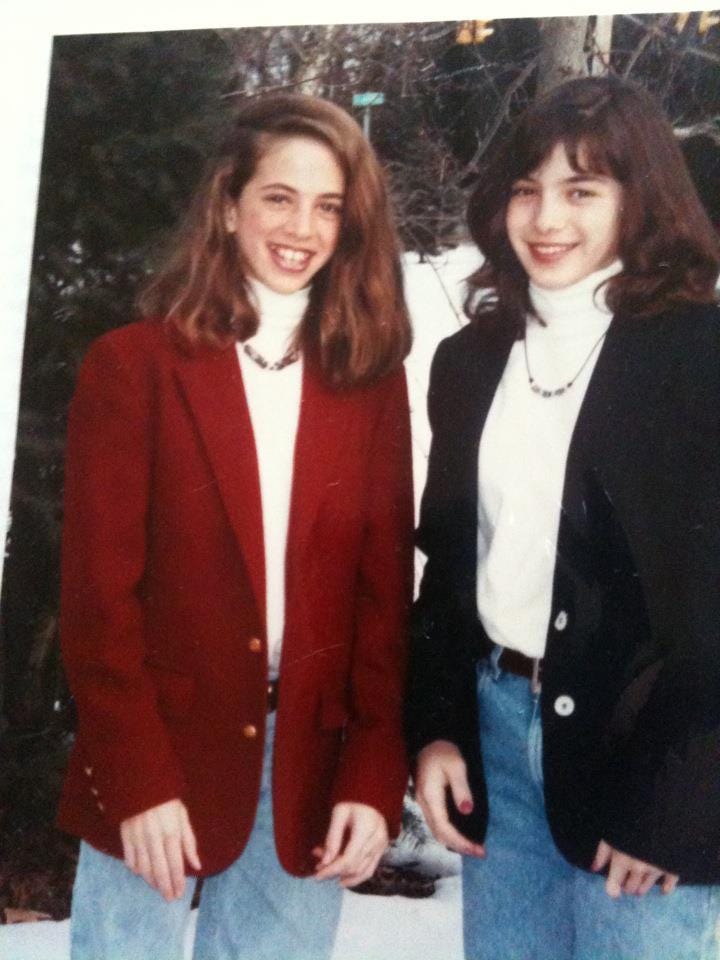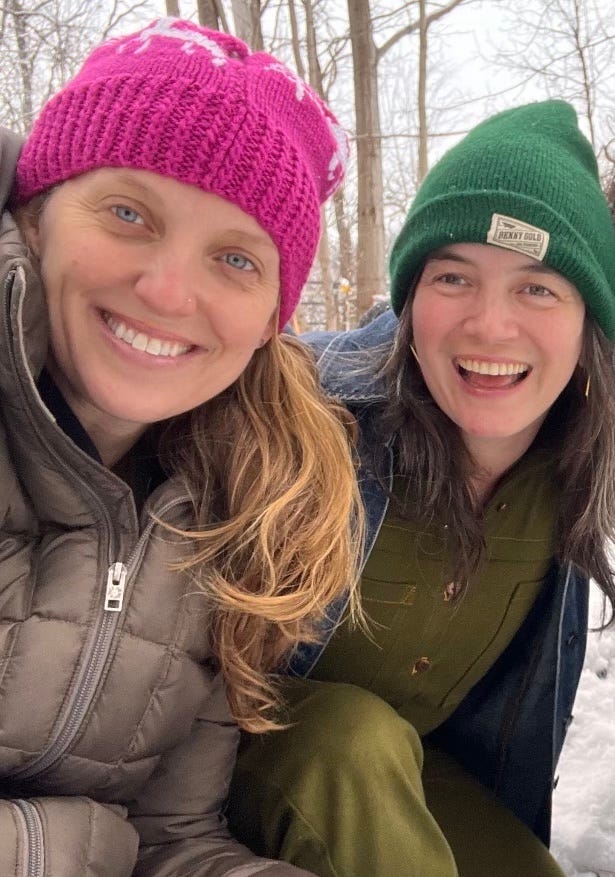This question has been coming up in the workshop I lead with Ellen Tuzzolo. We haven’t addressed it head on yet, and I want to try working out some of my thinking here.
My short answer to the question is yes. How can there be anything good (i.e., healthy) about an expression of gender that is shaped so entirely by the false and violent ideology of white supremacy? My expression of gender is racialized, and my expression of race is gendered. Whiteness and femininity are two of the big filters through which I experience life, and through which others experience me. And yet, I refuse white femininity as my only option. I refuse white femininity as the only option for us. By us, I mean Euro-Americans who have experienced dominant culture's expectations of white girlhood/womanhood and/or white femininity.1 If that’s you, you’re part of my us. I want us to be free of this because…
Unfortunately, white femininity is a trap, a rigid corset, a trick.
Unfortunately, white femininity is impossible, exhausting, and an expression of self-hate.
Unfortunately, white femininity is anti-Black.2
Unfortunately, white femininity is Native erasure.3
Unfortunately, white femininity is an invention birthed by British Colonialism and the American Empire, in service of white (male) elite control, exploitation and pillage.
Unfortunately, this is still the function of white femininity.
White femininity is Hilary Clinton’s endorsement of the War on Drugs and the criminalization of Black youth. White femininity is Ruth Bader Ginsburg’s invocation of the Doctrine of Discovery to deny the Oneida peoples’ rights to sovereignty over their ancestral homelands. White femininity is the New York Times publishing article after article by TERFs. White femininity is white women being 89 percent of nonprofit executive directors and CEOs across the U.S.4
If there are beautiful and good things about me, a white feminine person, then those things must not be white femininity. Those things must be an expression of something else.

‘Is white femininity all bad?’ is not the right question.
More useful questions might be…
How does white femininity block me from experiencing the most true version of me?
And,
What would be possible if there were no pressure to conform to what has been expected of ‘white girls’ and ‘white women’?
And,
What experiences of collective care, interdependence and love might ‘white’ women and gender expansive people know if we refused to align with white femininity? If we healed the parts of ourselves and the wounds between us that keep us lonely, in competition, and striving for success within racial capitalism?
These questions deserve time and space. I’m going to let them sit here without responding directly to them.
I’ll tell you some things that I appreciate about some of the white women who shaped me most growing up. I liked the way my grandmothers styled themselves with color and fabric and jewelry. I loved the way my paternal grandmother kept her home and cooked incredibly delicious foods. I loved her touch, her hugs, her smell, her warm embrace. I liked the way both of my grandmothers talked. I liked the way it felt to be loved by them, knowing that for them I reflected pleasing qualities of a granddaughter: pretty, artistic, inquisitive, petite, smart, polite. The thing is that my white grandmothers (both White Anglo Saxon Protestants, married to white men) were their own unique people with strong personalities, while for the most part choosing to live life in ways that did not challenge systems of racial capitalism or the cishetero-patriarchy. They were raised in the Jim Crow South (Memphis, TN and Camden, SC) in owning class families. They fondly remembered Southern warmth and community in a way that was particular to white families with ties to old money. I do not recall hearing either of them utter an explicitly racist comment, yet I inferred an overall comfort with the status quo from both of my grandmothers.

There are lots of things I love about being a white femme and queer cis woman now. When I consider what those things are, I notice that these are things I choose. Things that feel like ways to express who I am that may or may not be rewarded by the dominant society.
I love being me the more being me isn’t a default to what is expected, but an authentic expression.
I love being me the more being me involves loving all the parts of me.
I love being me the more being me is unapologetically queer and revolutionary.
I love being me the more being me feels like agency rather than obligation.
I love being me the more being me feels possible because of all the people who have my back, and because of all the people whose back I have.
I love being me the more being me means I practice saying yes with integrity, and saying no with integrity.
I love being me the less I seek to please others, and the more I devote my life to being true to myself.
I love being me the more I experience connection, generative conflict, radical honesty, grief, love, and my center.
Reckoning with White Femininity and Anti-Blackness: Towards Humanizing Relationships
Ellen Tuzzolo and I will co-facilitate this politically rigorous, somatically aware, and enlivening virtual gathering again in February 2025.
Thanks for reading! I’d love to hear from you. You might respond to this email, or:
There’s a little button below that makes it really easy to share this piece with someone else, or on social media:
The reason we landed on using the term ‘white femininity,’ which so far has not been a commonly used phrase, is to name something that many white people have personal experience with, whether we are cisgender women, transgender women, nonbinary people, gender expansive people, people assigned female at birth, and more.
I have developed a robust presentation that breaks this down, which I deliver in Reckoning with White Femininity and Anti-Blackness. I draw from years of research, which includes: listening to what Black women and Black gender expansive people say about their experiences with white women and white GEP; a literature review of Black, Brown and white feminists, historians, activist scholars on this topic and its cousins; connecting the dots directly from historical violence to harmful patterns playing out now in nonprofit culture and social justice movements.
For example, white women’s roles at Indian Boarding Schools
https://racetolead.org/race-to-lead-revisited/





